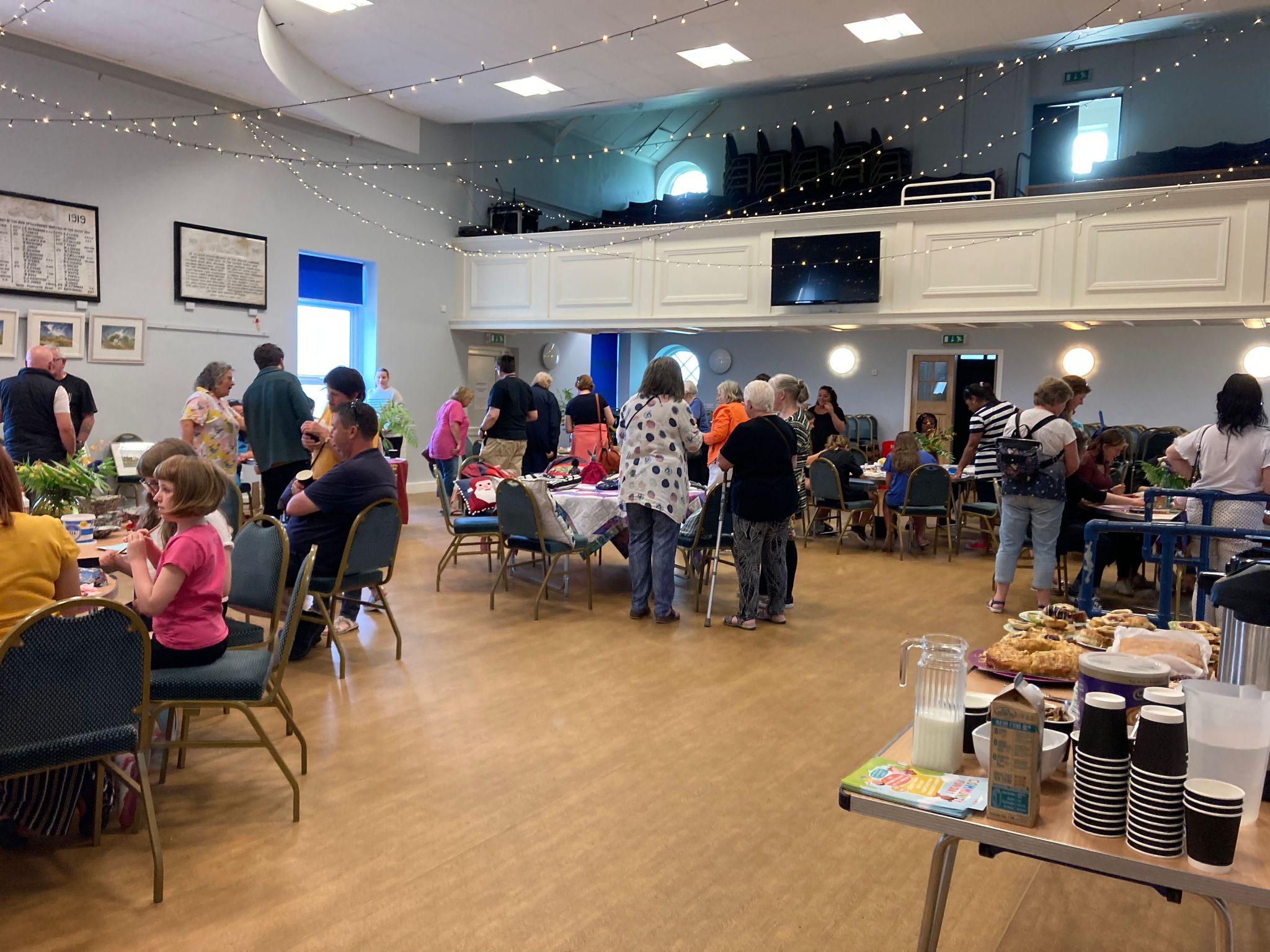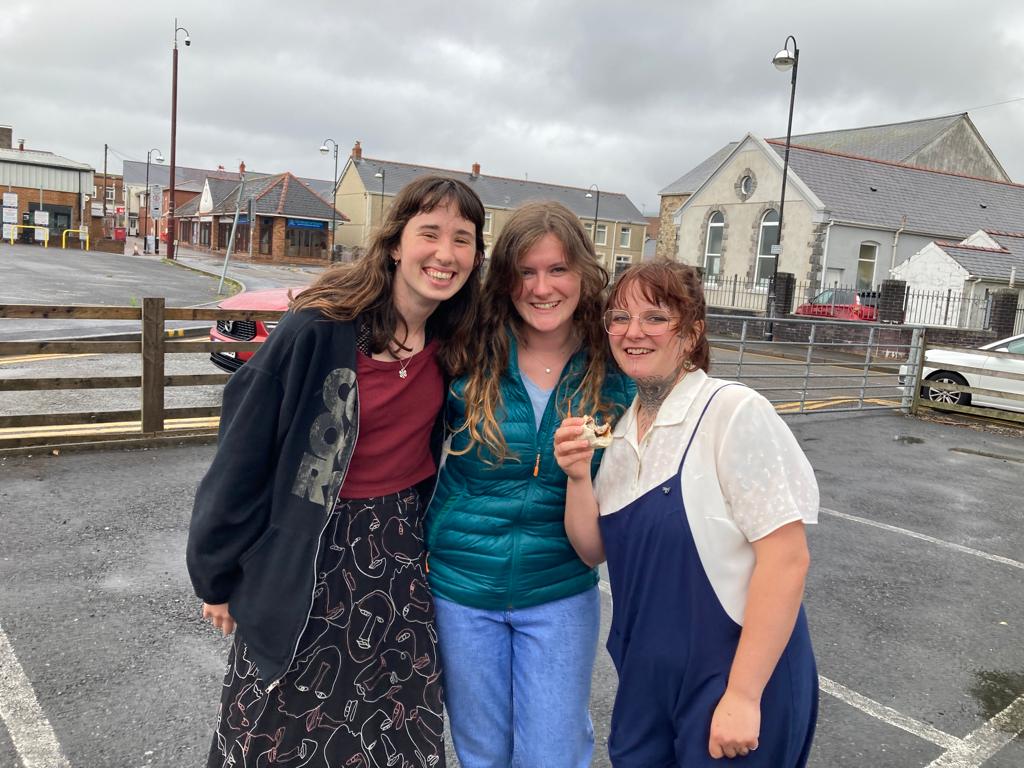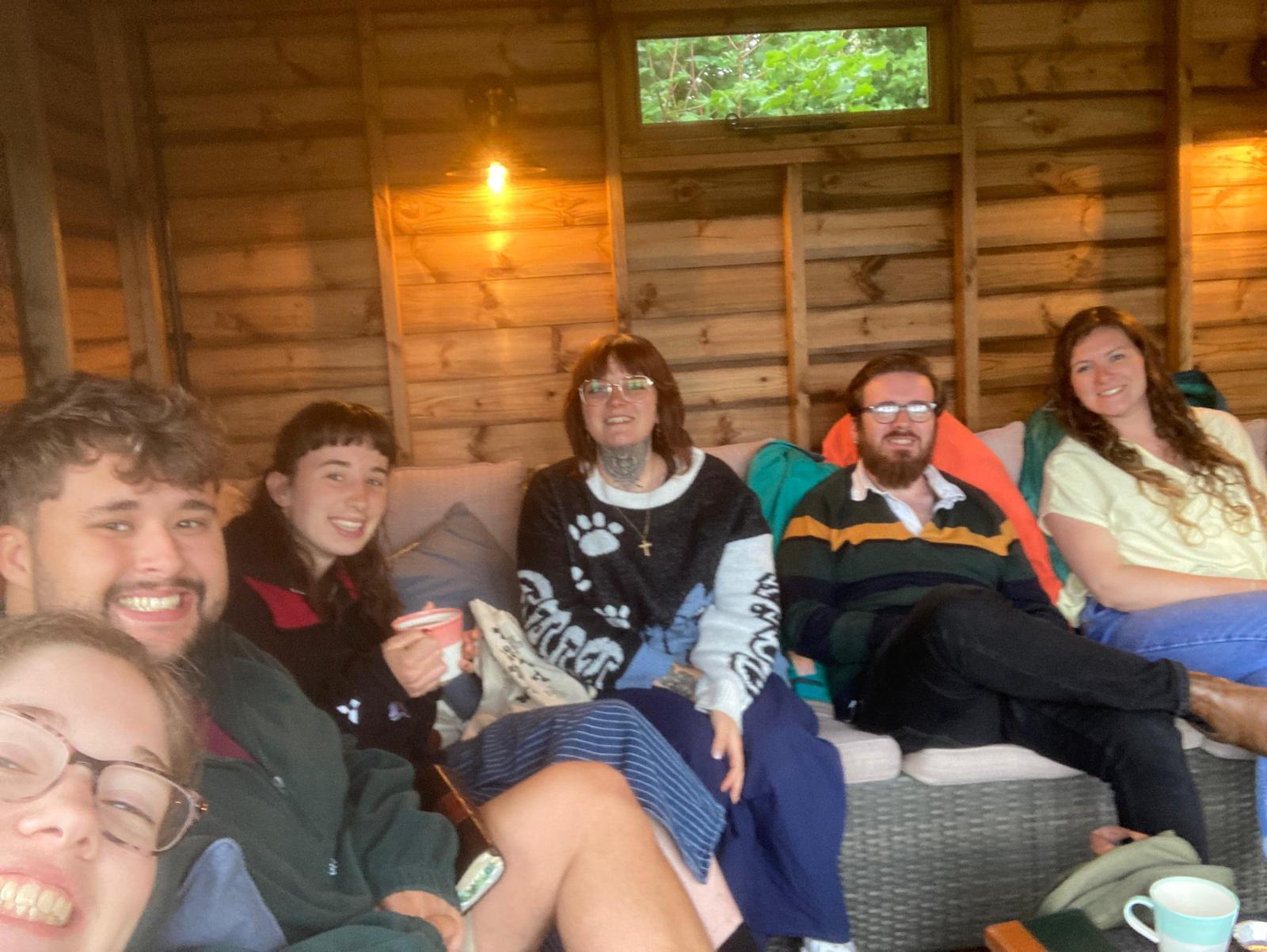Here in the UCCF Wales team, we love our country. From dramatic mountain ranges to unending beaches, we know we’re onto something special in our little corner of the UK. Yet most of our ministry tends to revolve around the cities and larger towns: Cardiff, Swansea, Aberystwyth and Bangor. There’s much work to be done here, and our primary calling is to universities, but it’s easy to forget that these towns and cities aren’t representative of Wales as a whole. Around one-third (32.8%) of the Welsh population live in rural areas (compared to 17% in Scotland and 20.9% in England).

There are churches across the country seeking to reach this spiritually needy rural demographic, and this June I had the privilege of taking a small team of CU students to help serve and learn from one of these churches in a week of outreach.
Ammanford Church is an example of a rural Welsh congregation (about 120 people come on a Sunday). Their vision: ‘to know Jesus more and to make Jesus more known’ in the Amman Valley area. We had the opportunity to join in with this vision of sharing Jesus with this former coal-mining community.
We began each day with prayer and Bible study, followed by training seminars from local church leaders. These seminars covered a wide range of topics from general issues like having evangelistic conversations to topics catered to our work in universities and our work in Ammanford. The seminar titled ‘Reaching Welsh communities’ was especially helpful; in particular for the two Welsh speaking students. One reflected, ‘It helped me to understand Wales’ rich Christian heritage. It also helped me to make sense of the place of Christianity in Welsh culture today.’ It was inspiring for me to see them put this training into practice throughout the week. Around 40% of people in Carmarthenshire speak Welsh, and our students were able to engage with them thoughtfully and in their own language.
After the training seminars, we would go into Ammanford town centre and try to make connections with the people we met there. One student, a gifted evangelist, said, ‘We’ve been handing out flyers in the town; it’s an opportunity to have conversations – we have questionnaires – and it’s an excellent way of engaging with the local community and inviting them along to the events we have on.’

These conversations led to people from the town coming to events throughout the week, particularly our coffee afternoons. In a town like Ammanford, safe social spaces like this are important ways to serve the community and to begin building relationships. One guest, a regular at these coffee afternoons, said, ‘This church really punches above its weight with all it does for this town.’ The students said that it was great fun talking to older members of the community, encouraging people to think about Jesus over snacks and a drink.
In the evenings we held various evangelistic events, including a Meal-with-a-Message at a local curry house, and Café Church at a Starbucks in the next town over. As well as the chance to reach out to the community, these were opportunities for the students to encourage the church. One student said, ‘I was sitting next to a woman at the curry evening who isn’t sure where she’s at with faith; her husband has become a believer in the last two years and she’s currently finding her place and finding where she fits in and isn’t quite sure. Although she’s very shy and introverted, I was able to have an open conversation with her following the talk about what it means to have assurance of faith, what it means to be unworthy and yet forgivable because of Christ!’
When asked what she was going to take away from the week, one student said, ‘I’ve learned a lot. I’m inspired by how engaged with the community the church is and how much of a priority that is for them. I’d love to see that more in my church and in my CU.’
Another student echoed this sentiment, ‘It’s given me a different view of what it means to look after one another. It’s not just about outreach to people who aren’t already Christians, but helping people who are Christians stay firm. It’s a family effort. At my larger church there are lots of activities, but at a smaller church it’s easier to see people as individuals. When I go back to my own church, I’ll be more inclined to ask people questions like, “How are things going in your life?” I feel encouraged to do that now that I’ve seen it done here.’
For me, I’ve been encouraged to slow down. In the student world we tend to think of things in one-to-three-year cycles; we expect results to come quickly or not at all. In rural communities, that’s not an option yet the fruit of a church’s slow, faithful ministry grows in abundance over the course of years.
Please pray:
- For those we met throughout the week, that the church would maintain those connections and have more opportunities to share Jesus with them.
- For the church as they continue to seek and serve Jesus.
- For the CU students in the team, that they would take what they learned back to their CUs and churches and serve well there.

This blog was written by Connor Reid, CU Staff Worker in Swansea.